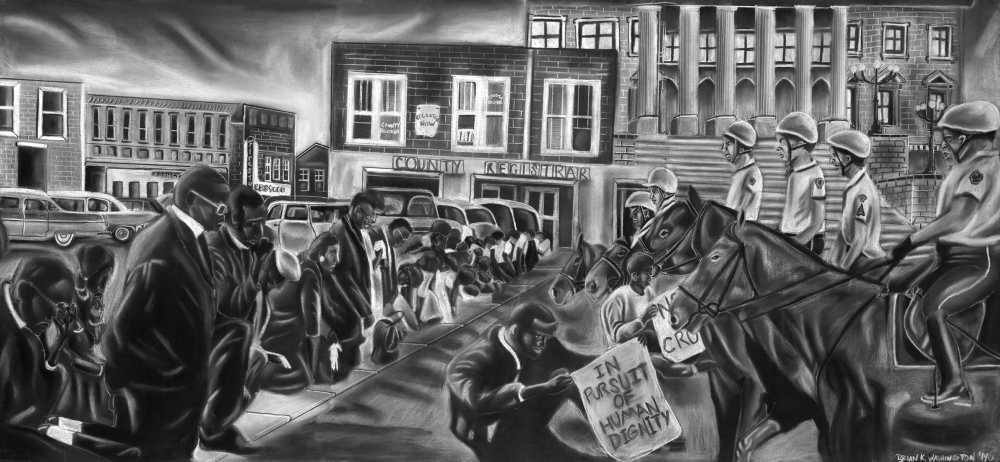As We Forgive Those Who Trespass Against Us

The key to the sit-in protest was non-violence, which required protesters to demonstrate a tough inner fiber, prohibiting them from flinching or retaliating when, occasionally, hooligans picked on them to discourage them or provoke them into violent acts. Sit-in protesters were commonly subjected to a full portfolio of humiliation and abuse – including smoke-blowing, hair-pulling, chair-jostling, coffee-spilling, attacks with wadded newspaper, verbal insults and racial epithets.
Some sit-ins — at lunch counters, state houses and other public and private venues — were more confrontational than others; some lasted longer than others; some were more high-profile than others. But the one common theme that united these protests was that they were all undertaken by the common person – brave individuals (of all races) who demonstrated grace under pressure, courage, and communal willingness to sacrifice for the sake of social change.
Protesters prayed to God and relied on their religious faith during these demonstrations to sustain the strength to face these challenges:
“Our Father who art in heaven, hallowed be thy name.
Thy kingdom come. Thy will be done, on earth as it is in heaven.
Give us this day our daily bread. And forgive us our trespasses, as we forgive those who trespass against us…”
–The Lord’s Prayer
In “As We Forgive Those Who Trespass Against Us,” Washington depicts a climactic moment of a sit-in protest. As a group of protesters peacefully assemble on a street corner to draw attention to the injustices of the South, with their heads bowed in prayer, local authorities mount their horses, and prepare to disperse the group by any means necessary. The threat of violence by the police was commonplace for those advocating for equal rights. Activists had to not only stand their ground, but remain vigilant in their fight for equal rights, all while letting go of the bitterness and resentment caused by local authorities who went to any length, legal or illegal, to maintain their power and control over Blacks.